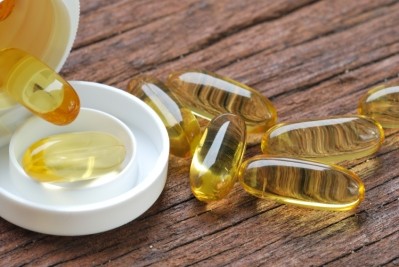Media investment means US probiotic growth outpacing EU

The order for US firm NBTY’s product Nature’s Bounty Probiotic 10 amounted to 17m Swedish krona (€17.9m) – while Probi’s total North American sales for the first nine months of 2014 was 24m Swedish Krona (€25.3m).
Peter Nählstedt, Probi CEO, told us the US market had seen huge growth in recent years – with an annual growth of 20%, according to market analyst, Euromonitor International.
“That was driven firstly by big investment in media by Danone [via US subsidary Dannon], then supplement firms more widely. This has really grown the category.”
He said this had served as a source of education for consumers, and as a result US consumers in the US were becoming relatively knowledgeable about probiotics.
This kind of media investment had not yet been seen, and was currently unlikely to be seen, in Europe use of the term probiotic on-pack was banned under the EU nutrition and health claims regulation (NHCR) in December 2012 since it was deemed an unapproved implied health claim.
“In Europe this [lack of media investment] started with the economic crisis, but then it has continued with the changes to regulation which meant this kind of communication was not possible.”
Media investment and regulatory frameworks
He said in the US probiotic firms were able to communicate more to consumers than in Europe, using structure/function claims if they they have the right documentation to back those claims and facing legal challenges if they do not.
"Structure/function claims may describe the role of a nutrient or dietary ingredient intended to affect the normal structure or function of the human body, for example, 'calcium builds strong bones.' In addition, they may characterize the means by which a nutrient or dietary ingredient acts to maintain such structure or function, for example, 'fiber maintains bowel regularity,' or 'antioxidants maintain cell integrity'," according to the US Food and Drug Administration (FDA).
These types of claims are not pre-approved by the FDA, but the manufacturer must have "substantiation that the claim is truthful and not misleading" and must submit a notification of the claim no later than 30 days after marketing the product with the claim. It must also include a disclaimer stating that the FDA had not evaluated the claim.
Nählstedt said European firms were using different creative ways to communicate, but obviously this was not as effective as on-product claims.
“But we believe it’s not all black in Europe. We will return to growth. The regulators are learning about probiotics and the benefits, and there’s room for generic claims we think.”
He said this would likely only be for the "well-documented strains", not a sweeping thumbs up to all.
In Italy there does seem to be some movement on this front, with an application from several association’s in the country for the use of the term probiotic as a generic descriptor - meaning it was a descriptive in use in Italy for over 20 years – currently being processed by the European Commission.
Women’s health on the horizon
Moving forward with the profit boost bought buy its latest order, he said: “Our growth plans encompass expanding our sales and marketing organization to drive sales of our existing platforms Probi digestis and Probi defendum in digestive and immune health; launch the Probi iron product and increase business development efforts in the functional food area.”
The firm was planning to launch a women’s health probiotic which would be combined with iron to target the largely female deficiency of this vitamin.
Pre- and probiotics will be discussed at Probiota 2015 in Amsterdam on February 3-5 – less than a month away.
From the next wave of prebiotics to the future of microbiome science beyond probiotics and prebiotics, to the nutrients’ effect on mood and anxiety, and strategies on pre- and probiotic market building, Probiota 2015 is a knowledge store you probably shouldn’t miss.
Click here for more.

















